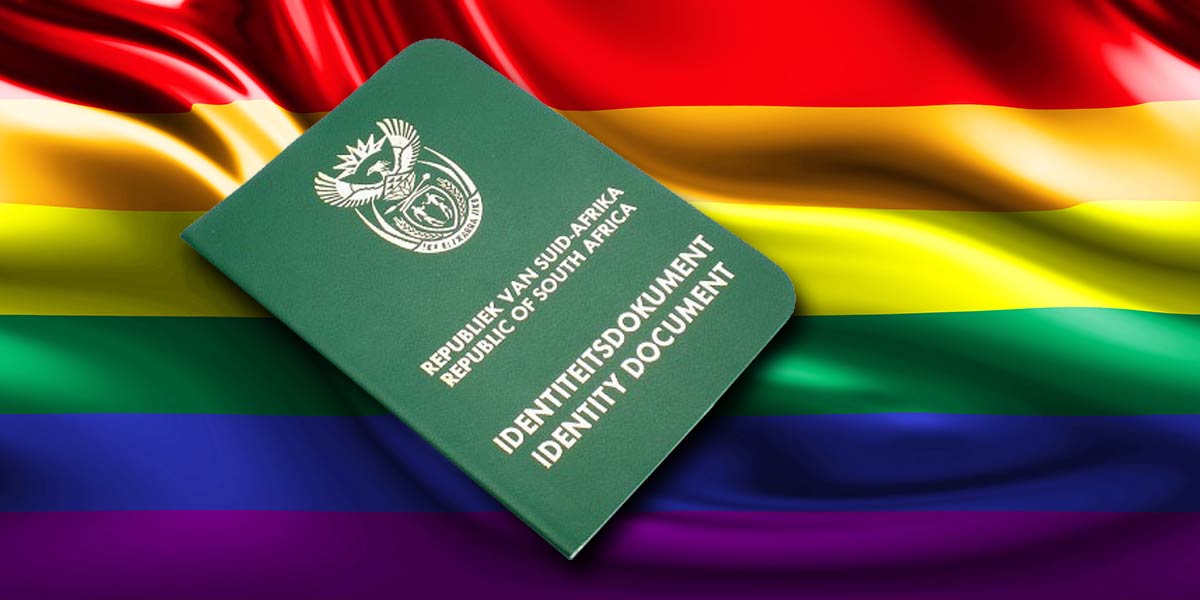Move to make state gender identity more inclusive in SA

The South African government wants to update the country’s gender identity policies and laws to be more inclusive of transgender and intersex citizens.
Published last month for public comment by the Department of Home Affairs (DHA), a new draft Official Identity Management Policy aims to create an “inclusive digital population register that is secure, accurate and confidential.”
The document has wide-ranging proposals that include modernising and digitising identity systems as well as the recognition of non-binary sex/gender categories.
It says that new legislation and the population register “must make a provision that enables the establishment of a category that is neither male nor female.” The document adds that “the sex category must cater for transgender [individuals] that will enable updates of sex information in the population register.”
The DHA says that the format of a new ID number should “be as inclusive as possible, especially when it comes to intersex and transgender persons.”
The current ID format only recognises female or male gender/sex in the seventh digit (0-4 means the holder of the ID is a female while 5-9 means the holder of the ID is a male).
The new policy suggests that “to accommodate non-binary, transgender and intersex persons, it is recommended that an alternative digit or letter ‘X’ be used for this population.”
While the policy is well intended, much more thought needs to be put into the proposals. For example, the authors at times confuse sexual orientation with gender, and the words transgender, non-binary and intersex are used interchangeably.
The authors also don’t entirely seem to grasp that a third gender option is not necessarily appropriate for all transgender people and would likely be more suitable for those who identify as non-binary or gender fluid. (Many transgender people do identify as male or female and may wish to be recognised under one of these binary gender categories.)
A concern is that the use of a very prominent ‘X’ in a person’s identity number could effectively “out” them and could be used to stigmatise or discriminate against them.
The DHA does suggest that another route could be to stop using specific numbers (or letters) that identify a person’s sex/gender, date of birth, place of birth or any other marker and instead randomly generate numbers when issuing an ID. This will make it more difficult for criminals to use people’s ID numbers for identity theft or fraud.
It is also clear that current legislation, such as the Alteration of Sex Description and Sex Status Act, and associated Home Affairs policies will have to be updated to make it far easier for individuals to speedily amend their gender marker. The Department, which is notorious for homophobia and transphobia among its staff, must further ensure that its officials provide equal, welcoming and dignified services to all.
The full draft policy can be viewed here. The public has until 28 February to make written submissions which can be emailed to oimpolicy@dha.gov.za.
Leave a Reply